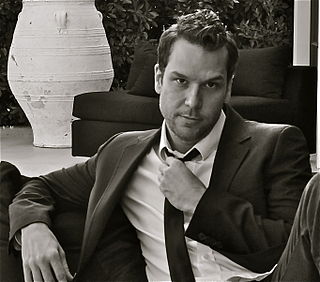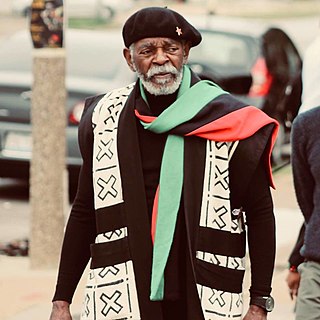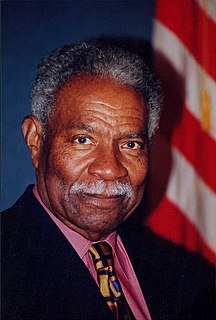Top 683 Malcolm X Autobiography Quotes & Sayings - Page 12
Explore popular Malcolm X Autobiography quotes.
Last updated on November 15, 2024.
For better or worse, I seem to gravitate toward writing about something or someone else, then have my own self shove its way into that story. It seems insanely narcissistic. But I also think there's a particular effect that comes from using my autobiography in service to another story, as opposed to being the subject. I'm much more comfortable working in that mode. And I do think I have a persona or mood that I keep coming back to: self-conscious, self-critical, unsure. I write a lot about bodies, particularly male ones, usually as a point of emphasis for my insecurities about my own.
When I find that I am more conscious, it's because I'm in tune with a higher reality. When I'm less conscious, it's because I've cut off that entunement to some extent. Maybe through drinking, through anger, through whatever. And I realized then that God has to be an infinite consciousness, and that I had to be an expression of that consciousness. And that the goal of life then must be to become more and more in tune with that consciousness. And I decided to give my life to God. And around that time, to make a long story short, I found Autobiography of a Yogi.
The only people who can ever put ideas into context are people who don't care; the unbiased and apathetic are usually the wisest dudes in the room. If you want to totally misunderstand why something is supposedly important, find the biggest fan of that particular thing and ask him for an explanation. He will tell you everything that doesn't matter to anyone who isn't him. He will describe paradoxical details and share deeply personal anecdotes, and it will all be autobiography; he will simply be explaining who he is by discussing something completely unrelated to his life.
I arrived in Tokyo in around '81. Around that time, I visited London for about two months - it was the period just before Malcolm McLaren released his solo album Duck Rock. I'd met him when he came to Japan, so I visited him in London and spent one evening with him and his girlfriend over at his house. He told me, "London is boring right now. You should go to New York." So he called a friend in New York, who I think was an old assistant or someone who helped him record early hip-hop stuff over there.
I grew up in the midst of poverty but every black kid that I knew could read and write. We have to talk about the fact that we cannot educate for critical consciousness if we have a group of people who cannot access Fanon, Cabral, or Audre Lorde because they can’t read or write. How did Malcolm X radicalize his consciousness? He did it through books. If you deprive working-class and poor black people of access to reading and writing, you are making them that much farther removed from being a class that can engage in revolutionary resistance.
Because I didn't go to film school, I had a collection of books that were inspiring or taught me how to make movies, shorts with my friends back in Brooklyn, and one of those books was How I Made a Hundred Movies in Hollywood and Never Lost a Dime which is Roger's autobiography. After reading that, I realized that oh my God, this guy is behind all my favorite Pam Grier movies. Oh my God, he made the Vincent Price Poe films that ran on television when I was little. He did Grand Theft Auto. He made Death Race 2000.
When you realize how hard it is to know the truth about yourself, you understand that even the most exhaustive and well-meaning autobiography, determined to tell the truth, represents, at best, a guess. There have been times in my life when I felt incredibly happy. Life was full. I seemed productive. Then I thought,"Am I really happy or am I merely masking a deep depression with frantic activity?" If I don't know such basic things about myself, who does?
I always think about Katharine Graham - she was the publisher of The Washington Post. In her autobiography she talks about the way her parents met. Her father was, I think, in New York just walking by on his way home and looked into a store and saw the lady that became his wife. It was just pure luck. And she said that it once again reminds her of the role that luck and chance play in our life. I really believe that, too.
I can't relate to the idea of suicide. I guess I'm just one of those people that is always optimistic and upbeat. But one day, I sat down. I said 'You know what? Just to kind of purge myself, I want to see what its like to feel that low'. So I decided to write a suicide note. Yeah, just to kinda flush it out there and put it on a page. And I started to do this, and I had an epiphany. I'll share this with you: a suicide note that is written by somebody that is not suicidal is called an autobiography. I am on Chapter 58.
In California, Jim Jones even staged a shooting of himself. The lesson of this was two-fold. One, that he was a god - he could heal himself. He had these magic powers. A large segment of his congregation came from a Pentecostal tradition that believed in faith healing and already believed Jones had the power to cure others. And two, the "shooting" made him seem important. Civil rights leaders were being gunned down - MLK, Jr., Medgar Evers, Malcolm X - and he longed to be considered as heroic and important as they were.
Poets are not so scrupulous as you are. They know how useful passion is for publication. Nowadays a broken heart will run to many editions." "I hate them for it," cried Hallward. "An artist should create beautiful things, but should put nothing of his own life into them. We live in an age when men treat art as if it were meant to be a form of autobiography. We have lost the abstract sense of beauty. Some day I will show the world what is it; and for that the world shall never see my portrait of Dorian Gray.
Anyone who has read Yeats's wonderful Autobiography will remember his Sligo shabby, shadowed, half country and half sea, full of confused romance, superstition, poverty, eccentricity, unrecognized anachronism, passion and ignorance and the little boy's misery. Yeats was treated well but was bitterly unhappy; he prayed that he would die, and used often to say to himself: "When you are grown up, never talk as grown-up people do of the happiness of childhood.
There never has been a desire on the part of the government that the struggle of Black people in America should be linked to the struggle of our people in every part of the earth. Every leader that was international in scope and in reach became the target of the government - Paul Robeson, Marcus Garvey, W.E.B. DuBois, Martin Luther King Jr., Malcolm X, Kwame Ture and the Honorable Elijah Muhammad. Any Black leader who would try to connect us to our brothers and sisters in Africa and Asia were seen as a threat and became a target.
One of my heroes is Mr. Sidney Poitier. In his autobiography, "The Measure of a Man," he talks about the difference between being a great person and being a great actor. I'm happiest when I'm acting, and I've dedicated my life to it. Still, as much as I love acting, at the end of the day, I want to be remembered as a great person, first, and as a great actor, second. I believe that acting is a talent while being a great person encompasses so much more: being a good father, a good husband and the ability to show compassion for others.
I would like to say that whites jumped right behind Malcolm X. They’re makin’ a book about him, it’s required readin’ in all colleges now, and they’re makin’ a movie about him, and projectin’ him as the leader and if you read his book and see the movie that’s comin’ out, it’ll make you hate Elijah Mohammed and the Muslims. Mainly, this is done to turn the black people against the real leader and I’d like to say that this is the way white people rule.
Last year, the journalist Malcolm Gladwell conducted a survey of chief executive officers of Fortune 500 companies for his book Blink. He discovered that while in the US population 14.5 per cent of all men are 6ft (1.83m) or taller, among CEOs of Fortune 500 companies the proportion is 58 per cent. And while 3.9 per cent of American adults are 6ft 2in or taller, almost a third of the CEOs were that tall.
The ‘I’ character in journalism is almost pure invention. Unlike the ‘I’ of autobiography, who is meant to be seen as a representation of the writer, the ‘I’ of journalism is connected to the writer only in a tenuous way—the way, say, that Superman is connected to Clark Kent. The journalistic ‘I’ is an overreliable narrator, a functionary to whom crucial tasks of narration and argument and tone have been entrusted, an ad hoc creation, like the chorus of Greek tragedy. He is an emblematic figure, an embodiment of the idea of the dispassionate observer of life.
No man could bring himself to reveal his true character, and, above all, his true limitations as a citizen and a Christian, his true meannesses, his true imbecilities, to his friends, or even to his wife. Honest autobiography is therefore a contradiction in terms: the moment a man considers himself, even in petto, he tries to gild and fresco himself. Thus a man's wife, however realistic her view of him, always flatters him in the end, for the worst she sees in him is appreciably better, by the time she sees it, than what is actually there.
To embrace the ideas of Malcolm X is to embrace the ideas of African Internationalism and the ideas of African Internationalism are opposite and contradictory to the ideals of Americanism. The ideals of African Internationalism promote freedom from oppression and injustice. These ideals promote freedom and independence.
Here - at this final hour, Harlem has come to bid farewell to one of its brightest hopes - extinguished now, and gone from us forever.... Many will ask what Harlem finds to honor in this stormy, controversial and bold young captain - and we will smile. ...We will answer and say unto them, ‘Did you ever talk to Brother Malcolm? Did you ever really listen to him? ...For if you did you would know him. And if you knew him you would know why we must honor him.'
The life of each and every one of us has been written. The crucifix is my autobiography. The blood is the ink. The nails the pen. The skin the parchment. On every line of that body I can trace my life. In the crown of thorns I can read my pride. In the hands that are dug with nails, I can read avarice and greed. In the flesh hanging from him like purple rags, I can read my lust. In feet that are fettered, I can find the times that I ran away and would not let him follow. Any sin that you can think of is written there.
The difference between America and England is that the English think 100 miles is a long distance and the Americans think 100 years is a long time. The difference between an autobiography and an unauthorized biography is like the difference between an account of your life written by your mother and one written by your mother-in-law.
Plato said that poets should be excluded from the ideal republic because they are such liars. I am a poet, and I affirm that this is true. About no subject are poets tempted to lie so much as about their own lives; I know one of them who has floated at least five versions of his autobiography, none of them true. I of course - being also a novelist - am a much more truthful person than that. But since poets lie, how can you believe me?






















